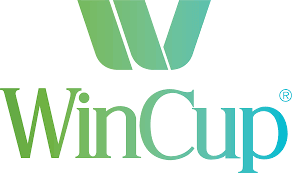WinCup anticipates growth for Jax-produced biodegradable straws after federal paper straw purge (Jacksonville Business Journal) — Paper straw growth may be on the verge of crumbling after President Donald Trump issued an executive order aiming to stop the use of the products altogether.
As big paper’s future in the straw market may be blowing in the wind, Georgia-based food products company WinCup sees an opportunity to present its biopolymer straws, neither paper nor petroleum-based, as an alternative for beverage consumption.
The company’s straws are made from polyhydroxyalkanoates (PHA) derived from fermented canola oil, which is how the straws get their name “phade.”
“So we’re basically taking cooking oil and turning it into plastic-like products,” said Michael Winters, president and chief revenue officer of WinCup. “The reason that’s so important is this fermented canola oil, once it’s exposed to bacteria, bacteria eat it as a food source, so it breaks down incredibly quickly.”
The straws are biodegradable and usually break down by two or three months in multiple environments, including marine settings, while plastic straws typically take 200 years, Winters said.
Additionally, the product is safer than paper straws, he added.
Researchers from the University of Antwerp in Belgium found that perfluoroalkyl substances, which are harmful to humans and wildlife, were found to be present in several types of straws and were more frequently detected in plant-based materials, such as paper and bamboo, according to the research.
Phade straws are made without PFAs, plastics or mushy paper, according to its website.
Jacksonville is at the center of production for WinCup’s phade straws with a manufacturing plant at 5515 West 5th St. on the Westside.
The company recently sold its 3 billionth straw, and while Trump’s executive order seeks to ban paper straws from the federal government and curtail their use entirely, Winters sees a new door opening WinCup’s line of products.
“… the combination of those two things really opens up the door, the discussion for a better way, a better product, something that’s not paper, that’s not plastic, that has an end of life, and not harmful to our Earth,” Winters said. “So maybe we were a little ahead of our time on this in terms of the invention of it.”
But the path ahead still has some roadblocks. Winters said 20 to 25 municipalities have restrictions on PHA products simply because it’s a biopolymer.
“They’re grouping it in with other biopolymers that really don’t solve the problem,” Winters said. “So we’ve got work to do in those 20 to 25 municipalities to help educate them on the benefits of PHA and how it is marine degradable, so that if it does end up in the ocean — we certainly hope it doesn’t — but we all know consumers don’t always do the right thing, disposing their trash properly, but if it does end up in the ocean, it’s going to go away.”
WinCup itself has been involved with educating local governments on the environmental impact of their biopolymer straws and has been credited with influencing certain municipalities to change their policies.
The chief revenue officer pointed to ordinances in Key West and Fort Myers Beach that were updated in the past several years to allow for biodegradable straws such WinCup’s.
A Key West commissioner credited WinCup for influencing the decision.
“I brought the original ordinance forward after I met with the WinCup phade team because I was quite excited and impressed about this technological advancement and how it could help to protect our Key West Marine environment,” Key West Commissioner Jimmy Weekley said in a 2023 WinCup news release.
For WinCup, it’s all about timing. The company is no stranger to turbulent times, launching its phade straw in July 2020, amid widespread lockdowns in the first year of the Covid-19 pandemic.
But even with more people staying at home that year, restaurants saw a surge in takeout orders, providing the perfect avenue for a rise in straw demand, Winters said.
Winters said he’s learned to not try and predict economic patterns, though. He noted that a potential recession could limit spending and reduce restaurant outings, which would impact the company.
However, he added that the company has not seen any effects from economic turbulence so far and believes that it’s because the company’s product is so unique.
In fact, as far as straws go, WinCup’s outlook is optimistic, as the company is projecting almost triple-digit growth this year on the product line, Winters said.
“I think, if anything, what the White House is doing and the executive orders and the direction they’re taking, I think it’s going to push more business our way, because we all know that paper straws don’t work,” Winters said. “ … It’s a product that gets soggy and collapses and gives consumers a very poor experience.”
Courtesy of Global Newswire

